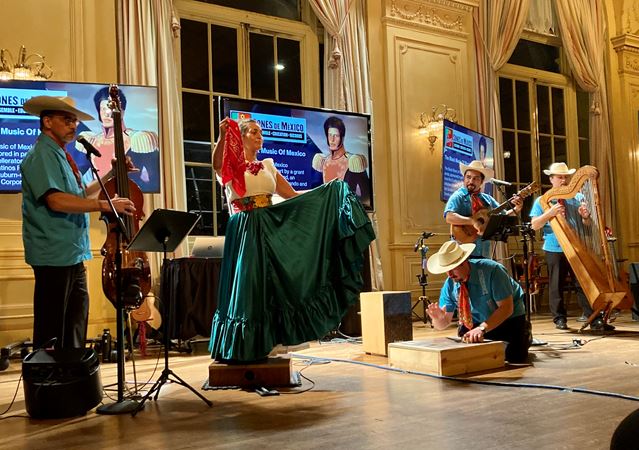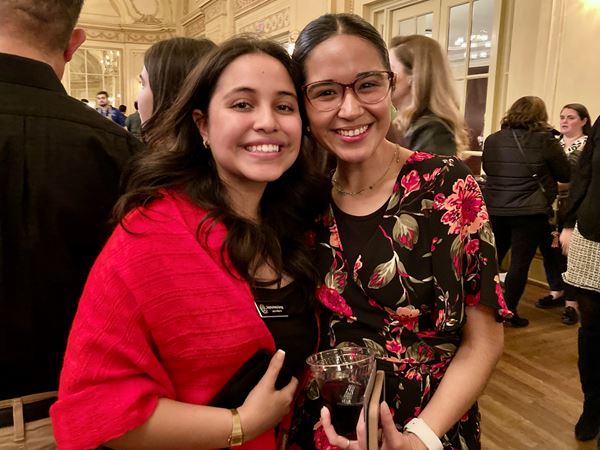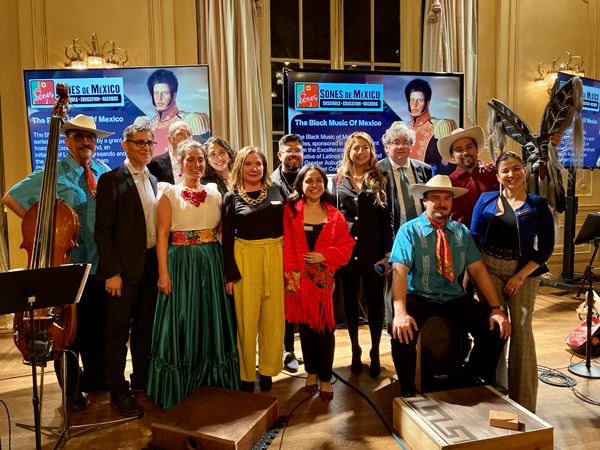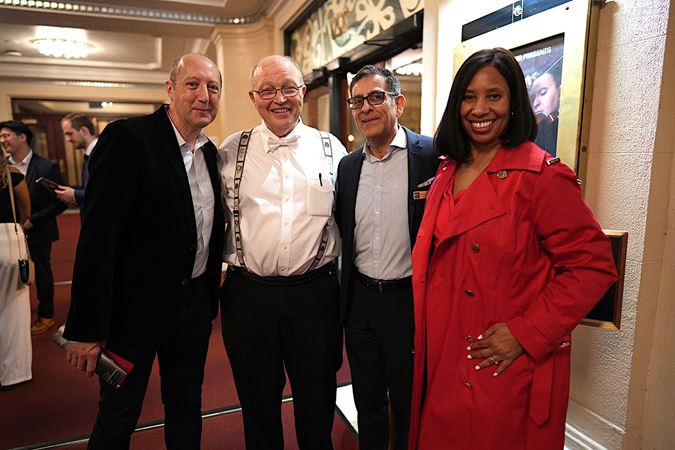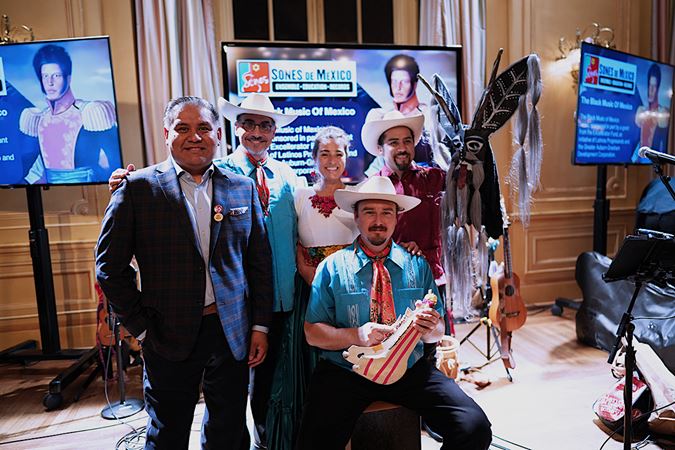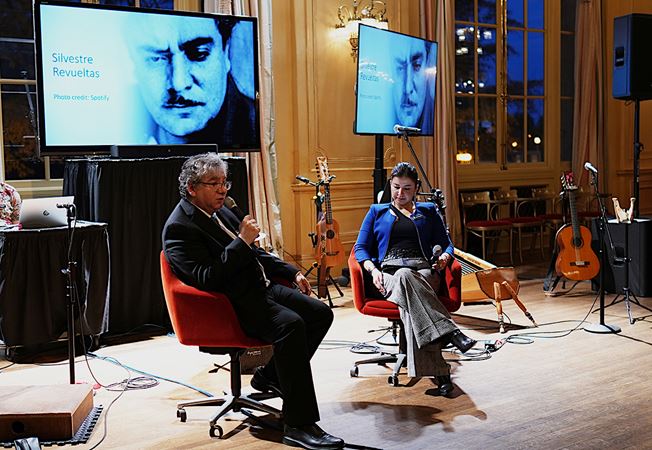Latino Alliance members Jesús Del Toro and Maria Carbonell Rojas discuss the enduring legacy of Mexican composer Silvestre Revueltas at “¡Noche de una obra maestra mexicana!"
Megan Ireland
More than 175 patrons turned out for “¡Noche de una obra maestra mexicana!,” the first event of the CSO Latino Alliance’s 10th anniversary season. The reception, discussion and performance, held Oct. 24 in Grainger Ballroom of Orchestra Hall, celebrated the legacy of influential Mexican composer Silvestre Revueltas (1899-1940). One of his signature works, Sensemayá, closed an all-Americas program performed Oct. 19-24 by the Chicago Symphony Orchestra, under James Gaffigan.
Anchoring the festive occasion was a four-song performance by the Sones de Mexico Ensemble, the Chicago-based Grammy- and Latin Grammy- nominated group based at the Old Town School of Folk Music.
The event began with a discussion led by Dr. Jesús Del Toro, a founding Latino Alliance member and author of Silvestre Revueltas del Otro Lado, a book about the composer’s experience on the other side, i.e., north of the U.S./Mexican border. Joined by Latino Alliance member María Carbonell Rojas, Del Toro emphasized the importance of Revueltas’ music and activism. He pointed out that American musicologist Joseph Horowitz has said of Revueltas: “Not only was he Mexico’s greatest composer, Revueltas was the supreme political composer of concert music produced in the Western hemisphere.”
Revueltas, who died at age 40, spent a significant portion of his short life in Chicago, where beginning in 1919 he studied at the Chicago Musical College (now part of Roosevelt University) and worked as an accompanist at silent movie theaters. Del Toro noted that Revueltas most likely walked by Orchestra Hall, along Michigan Avenue, on his way to music classes.
“He was a migrant from a different culture, who came to Chicago and became the composer he was meant to be,” said Del Toro, noting the parallels between Revueltas’ experience and those of subsequent generations of immigrants. “Revueltas was interested in everyday people and also fought for social change. ... He brought a Mexican sound to its [classical] music and helped to develop a modern Mexican identity.”
Introducing Sones de Mexico, María Carbonell Rojas declared, “Be ready for your brain to see colors!”
To complement its current “Black Music of Mexico” series, Sones de Mexico chose songs from the states of Veracruz and Guerrero, settled by descendents of African slaves, who arrived during the Spanish colonial era. Guerrero takes its name from Vicente Guerrero, an Afro-mestizo statesman who became the second president of Mexico (from 1828 to 1831) and abolished slavery in most of that nation.
Sones de Mexico specializes in Mexican folkloric music, performed on traditional instruments such as arpa jarocha (harp), vihuela (a small guitar tuned like a lute), jarana (another type of small guitar), cajon (a box-like drum) and quijada (a percussion instrument made of a donkey’s jawbone). Its members are co-founder Juan Díes (bass and vocals), Zacbé Pichardo (harp), Eric Hines (percussion), Lorena Íñiguez (vihuela, jarana, percussion and dance) and Irekani Ferreyra (violin, jarana and vocals).
Refreshments from Forte, the onsite restaurant at Symphony Center, were served. Wine and beer were donated by the Consul General of Mexico in Chicago, coordinated by Michelle Murcia, assistant to the consul general.
Several dignitaries from the Chicago consulate community attended the reception: Ambassador Reyna Torres Mendivil, consul general of Mexico; Gerardo Guerrero, deputy consul general of Mexico; Ambassador Nelson Olivero García, consul general of Guatemala, and Verónika Bustamante Gómez, consul general of Peru. Also attending was Guillermo Pulido, director of the National Autonomous University of Mexico in Chicago.
Before the crowd headed to the evening’s CSO concert, Ramiro J. Atristaín-Carrión, co-chair and founding member of the CSO Latino Alliance, reminded attendees of upcoming Latino Alliance events this season, including the group’s 10th anniversary celebration, on Jan. 26 at Instituto Cervantes. “Please join us,” he said, “as we continue to celebrate our journey.”
